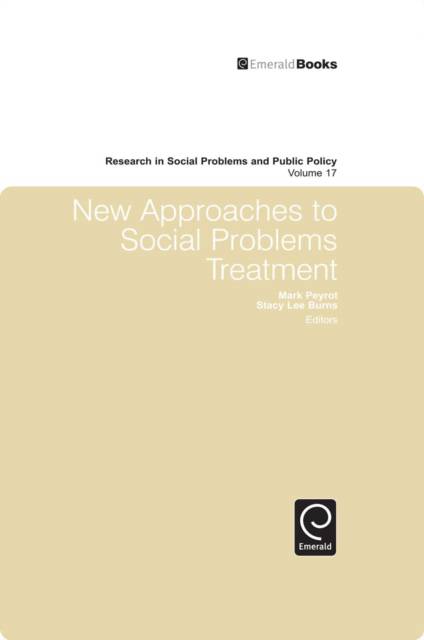
Bedankt voor het vertrouwen het afgelopen jaar! Om jou te bedanken bieden we GRATIS verzending (in België) aan op alles gedurende de hele maand januari.
- Afhalen na 1 uur in een winkel met voorraad
- In januari gratis thuislevering in België
- Ruim aanbod met 7 miljoen producten
Bedankt voor het vertrouwen het afgelopen jaar! Om jou te bedanken bieden we GRATIS verzending (in België) aan op alles gedurende de hele maand januari.
- Afhalen na 1 uur in een winkel met voorraad
- In januari gratis thuislevering in België
- Ruim aanbod met 7 miljoen producten
Zoeken
New Approaches to Social Problems Treatment
€ 288,45
+ 576 punten
Omschrijving
This volume examines diverse developments in the evolution of public policy institutions for remedying social problems. The collected chapters address the transformation of social problems, social problems work, and social problems solutions in the context of criminal justice, mental health, and community institutions (schools) in contemporary society. These diverse settings and institutions collectively reflect a trend toward the use of various 'treatment' initiatives within formal disciplinary systems and as part of legalistic social control strategies. Although all of the remedial approaches considered are 'new' in the sense of being recent innovations, many are only the most recent in a long sequence of policy initiatives. The contributors to the collection demonstrate that recent transformations in remedial approaches to social problems and the challenges faced by such policy initiatives are as much a function of what has come before as they are of their own inherent features.
Specificaties
Betrokkenen
- Uitgeverij:
Inhoud
- Aantal bladzijden:
- 312
- Taal:
- Engels
- Reeks:
- Reeksnummer:
- nr. 17
Eigenschappen
- Productcode (EAN):
- 9781849507363
- Verschijningsdatum:
- 5/02/2010
- Uitvoering:
- Hardcover
- Formaat:
- Ongenaaid / garenloos gebonden
- Afmetingen:
- 155 mm x 231 mm
- Gewicht:
- 612 g

Alleen bij Standaard Boekhandel
+ 576 punten op je klantenkaart van Standaard Boekhandel
Beoordelingen
We publiceren alleen reviews die voldoen aan de voorwaarden voor reviews. Bekijk onze voorwaarden voor reviews.








